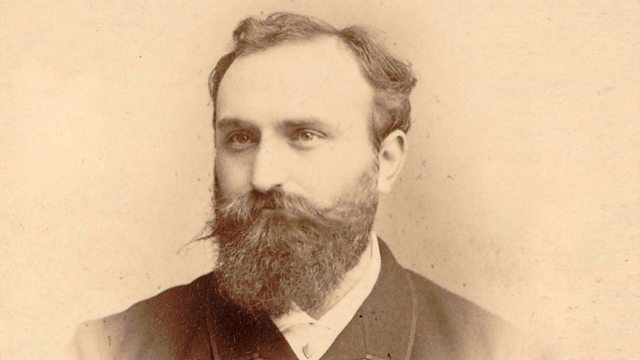
The Art Collector
Donald Macleod explores Chausson’s passion for art, which he indulged at home in France and on frequent trips to Italy.
Donald Macleod explores Chausson’s passion for art which he indulged at home in France and on frequent trips to Italy.
Amédée-Ernest Chausson grew up in Paris during a period of great political, social and economic upheaval in France. Born in 1855, he was fifteen at the outbreak of the Franco-Prussian; he lived through the collapse of the Second Empire and the advent of the Third Republic. However Chausson’s family was materially little affected by these dramatic events, quite the opposite in fact. His father profited from the 1850s onwards, working as a building contractor for Baron Haussmann, the man Napoleon III had entrusted to remodel the narrow streets of medieval Paris into wide open boulevards. Even after Napoleon was deposed, the re-construction of the capital city continued. Chausson’s bourgeois lifestyle reflects the salon society of the mid nineteenth century, with an extensive art collection adorning the walls of his family’s substantial residence at 22 Boulevard de Courcelles a stone’s throw from leafy Parc Monceau. Chausson remained in the same mansion with his wife and their three children. Supported by a private income, unlike most artists and musicians within his large circle of acquaintances, he was able to devote himself to composing entirely without any pressure to provide financially for his family. That’s not to say that Chausson’s life was without a care in the world. Critics saw him as a dilettante rather than a serious musician. His relatively small output reflects the agonies of doubt in his mind. His battle to find his own voice at a time when Wagner had cast a long shadow over French music resulted in his only opera taking almost ten years to complete. This struggle for artistic recognition was only just turning a corner when he died unexpectedly at the age of 44 in 1899.
La Nuit, Op 11
Brigitte Balleys, mezzo soprano
Sandrine Piau, soprano
Billy Eidi, piano
Chanson perpetuelle Op 37
Salomé Haller, soprano
Le Quatuor Manfred
Nicolas Kruger, piano
Soir de Fête, Op 32
Orchestre du Capitole de Toulouse
Michel Plasson, conductor
Piano Quartet in A major Op 30 (First movement)
Schubert Ensemble
La Légende de Sainte-Cécile, Op 22 (Act 3 Finale)
Isabelle Vernet, soprano
Chorus of Radio France
Ensemble Orchestral de Paris
Jean-Jacques Kantorow, conductor
Producer: Johannah Smith for ��ѿ��ý Wales
Last on
More episodes
Music Played
-
![]()
Ernest Chausson
La Nuit (2 Duos, Op 11)
Performer: Billy Eidi. Singer: Brigitte Balleys. Singer: Sandrine Piau.- Timpani 2C2028.
- Timpani.
- 19.
-
![]()
Ernest Chausson
Chanson Perpetuelle for voice and string quartet, Op 37
Performer: Nicholas Kruger. Singer: Salomé Haller. Ensemble: Le Quatuor Manfred.- ZZT100402.
- ZigZag.
- 7.
-
![]()
Ernest Chausson
Soir de Fête, Op 32
Orchestra: Orchestre du Capitole de Toulouse. Conductor: Michel Plasson.- CDC 7478942.
- EMI.
- 4.
-
![]()
Ernest Chausson
Piano Quartet in A major, 1st movement
Performer: William Howard. Performer: The Schubert Ensemble.- 10914.
- Chandos.
- 5.
-
![]()
Ernest Chausson
Act 3 Finale (La Légende de Sainte Cécile)
Singer: Isabelle Vernet. Choir: Maîtrise de Radio France. Ensemble: Paris Orchestral Ensemble. Conductor: Jean‐Jacques Kantorow.- EMI : CDC 5-55323-2.
- EMI.
- 15.
Broadcast
- Thu 6 Sep 2018 12:00��ѿ��ý Radio 3
Beethoven Unleashed – the box set
What was really wrong with Beethoven?
Composers A to Z
Who knew? Five eye-opening stories from Composer of the Week
Five reasons why we love Parry's Jerusalem
What is the strange power of Jerusalem which makes strong men weep?
A man out of time – why Parry's music and ideas were at odds with his image...
The composer of Jerusalem was very far from the conservative figure his image suggests.
Composer Help Page
Find resources and contacts for composers from within the classical music industry.





